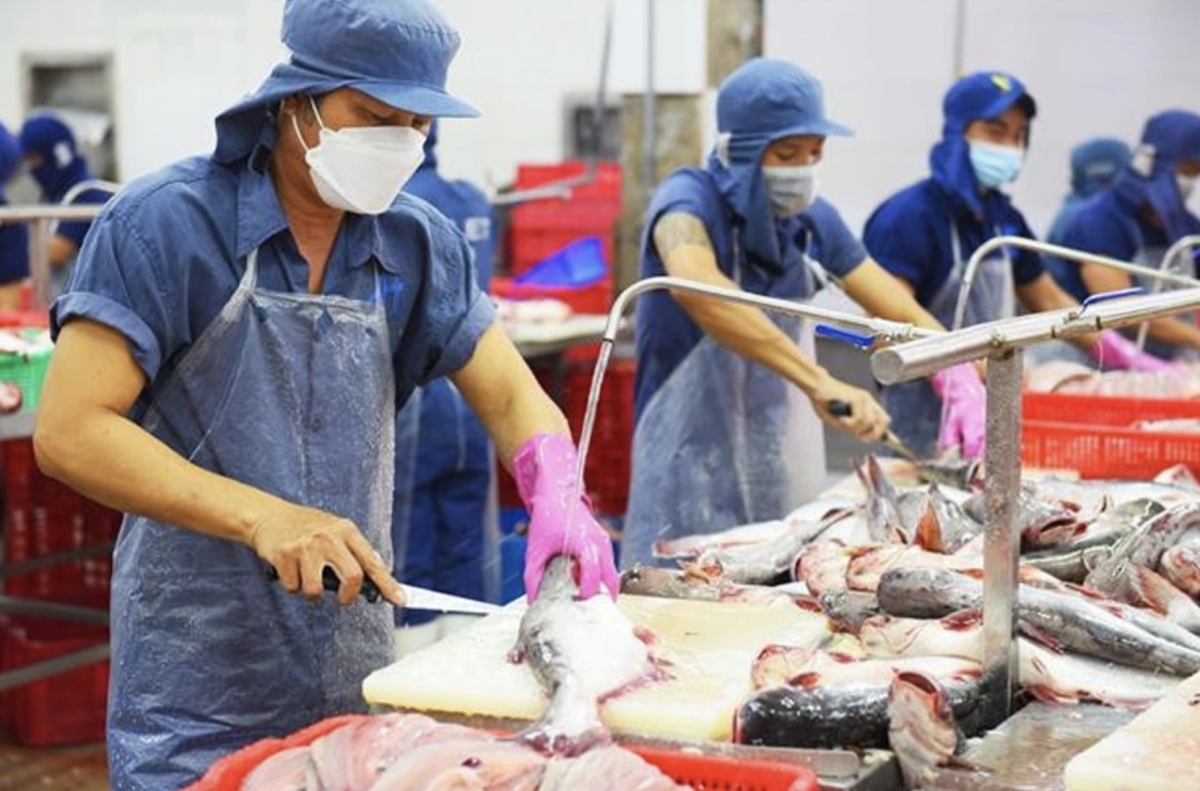Vietnam’s pangasius exports climb to over US$1.2 billion in seven months
VOV.VN - Vietnam earned more than US$1.2 billion from pangasius (tra fish) exports in the first seven months of the year, an 11% increase year on year, according to Vietnam Customs.

Notably, shipments to Brazil surged 64% to US$106 million, underscoring the South American country’s growing appetite for Vietnamese pangasius.
China and Hong Kong (China) continued to be the largest buyers, accounting for nearly a quarter of total export value. However, sales to this market fell 4% to US$302 million, reflecting weakening demand.
In July alone, exports dipped 3% year-on-year to US$53 million, mainly due to sluggish consumption of whole fish and frozen fillets, the Vietnam Association of Seafood Exporters and Producers (VASEP) reported.
In contrast, the Comprehensive and Progressive Agreement for Trans-Pacific Partnership (CPTPP) bloc proved a growth driver. Exports to member countries rose 34% to US$208 million, buoyed by strong demand in Canada, Malaysia, and several American markets.
The United States also showed signs of recovery, with imports reaching US$206 million, up 8% year on year. July shipments, however, slipped slightly by 0.3% to US$31 million.
Meanwhile, exports to the European Union increased 5% to US$104 million, supported by gains in Spain, Belgium, Italy, and France, which offset declines in Germany and the Netherlands.
By product category, frozen fillets remained the backbone of Vietnam’s pangasius exports, bringing in US$976 million, up 11%. Processed pangasius also recorded strong momentum, soaring 41% to US$30 million, signaling a shift toward higher-value, processed seafood that better aligns with strict market standards and helps reduce tariff and price risks.
Looking ahead, VASEP cautions that several factors could affect export performance in the coming months. A potential US tariff hike on whitefish imports may disrupt global supply chains, creating opportunities for Vietnamese exporters but also intensifying competition. In China, demand remains uncertain due to price sensitivity and high inventories.
Despite these challenges, VASEP expects the EU and CPTPP markets to remain stable, supported by free trade agreements and steady consumer purchasing power.




